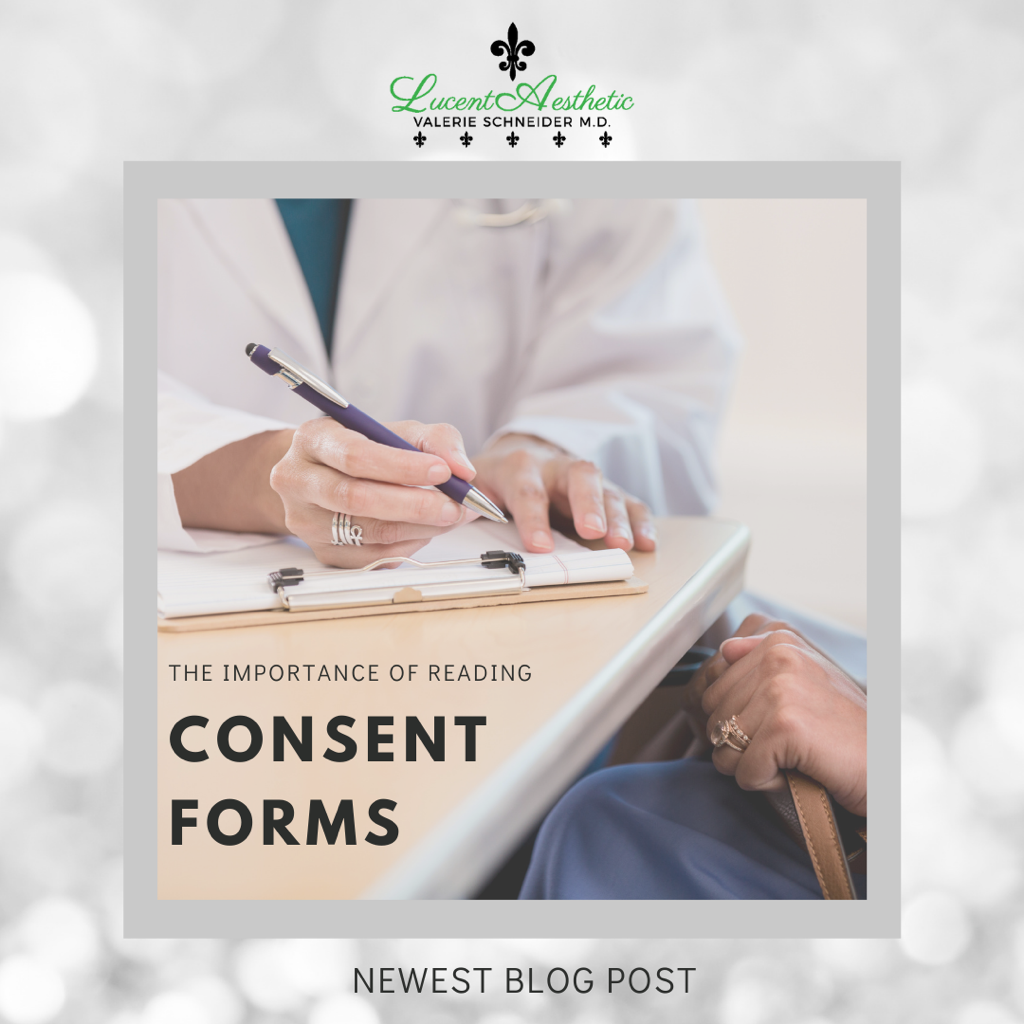|
I recently hired some new staff in my office. This is always a good time to review our processes and procedures to improve our actions. One issue comes up frequently in our new training. We put much effort into our forms, but do patients even read the consent forms they sign?
These are times of quick convenience and efficiency. Many patients now find it an annoyance to read or sign a consent form. Most patients unfortunately sign forms without really reading or even knowing what is in them. I’ve never understood how someone can go through a serious medical procedure without even reading what the possibilities are. It is very important that this field of medicine works to change that for the good of everyone. There is no medical procedure or treatment without risks and potential benefits. Everyone knows the potential benefits because we look at those pictures or videos that show us what we want to see for ourselves. The problem is, those same videos and pictures do not show us the risks, the potential complications or who is even a good candidate for the treatment they are promoting. Those points are critical in deciding who can even get a treatment or what their potential outcome may be. I have patients who come into my clinic now with phone in hand asking for a result they see on a video but not understanding or even wanting to understand the implications of doing that procedure. Sometimes, they are not a candidate for that treatment or cannot accept that the product they want is not appropriate for their skin. Other times, they continue to ask for something that I have already established as not an option for them. In those moments, I often think about how desperately they want something and they would sign any form that says anything to get it. Consent forms are a formality and an opportunity that must be emphasized in our patient physician relationships. Appropriate discussions are needed to establish candidacy for a treatment before the treatment takes place. This is the reason for a consultation. It gives both doctor and patient the opportunity to ask questions and understand all the implications of a treatment before it happens. It is a valuable time to see if my goals are aligning with my patient. Patients need to read their consent forms thoroughly, understand them, ask questions and be prepared for possible side effects. This is the nature of consenting. When we sign a consent, we have decided as an individual that the potential benefit is worth the risk of the potential side effects of that treatment. Likewise, the post care information is helpful and should be carefully followed in order to get the best outcome. There should be ample time for all of these discussions. Doctors need to assure that patients are reading their forms and spend the time addressing any concerns before a procedure takes place. Having spent many years practicing in the field of Pulmonary, Critical Care and Sleep Medicine, I can tell you that all treatments have potential problems. No two bodies are alike or respond the same way, even in the most experienced hands. I find that some patients in the aesthetic field are so eager to get a treatment done, they do not follow the pre treatment recommendations, often are not forthcoming with their answers to important screening questions and are less than enthusiastic about following a post treatment care plan. All of these issues create an unnecessarily higher risk procedure for that person. I hope this will help everyone create an open dialog while consulting with your physician about potential aesthetic treatments. It is perfectly acceptable to decline a treatment whose side effects are not bearable to you. Spend the time to read your treatment forms and discuss any questions with your doctor. Being prepared for a treatment enhances the experience. This is beneficial to everyone. Dr. Valerie Schneider
1 Comment
|
AuthorHello All. Archives
June 2023
Categories
All
|
* Images on the site are models, & individual results may vary
Contact Us
Let's talk about what we can do for you today!
HoursM-T-Th-F - 10:00-5:00
Hours are currently subject to change. We will be updating them each Friday on our voicemail for the following week. Please call 925-933-3194 to updates. |
Telephone |
Address1600 S. Main Street - Suite 145
Walnut Creek, CA 94596 |
Find Us on Social Media |



 RSS Feed
RSS Feed